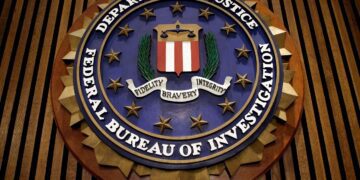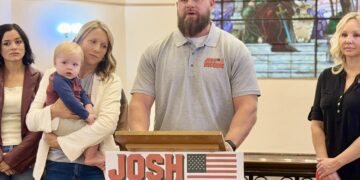Dr. James Dobson, Dr. Raymond Moore and Michael Farris, Esq.
By Fran Eaton -
Thirty years ago, without the convenience of Facebook, Twitter or Instagram, an education movement sparked among American families discontented with the nation’s public school system.
Conservative families were some of the first to be inspired to take matters into their own hands while listening to Dr. James Dobson’s Focus on the Family radio broadcasts and reading Dr. Raymond and Dorothy Moore’s Better Late than Early and School Can Wait education philosophy handbooks.
With Dr. Dobson and the Moores’ assurances that their children would grow up to less dependent on peers and less plagued with behavioral problems if they delayed formal lessons until age eight, even up to 10, rather than at three, wide-eyed parents stepped into the unknown.
And as if that scenario wasn’t scary enough, many were met with angry school administrators looking for missing students and their attached state and federal funding for their red-inking budgets.
Dr. Dobson provided rationale for an alternative, the Moores' provided technique to take the first steps, leaving one vital area gaping open – the need for legal counsel.
About that time, a young Constitutional attorney by the name of Michael Farris coordinated with other legal minds to establish the Home School Legal Defense Association. For a mere $100 annual membership fee, families could rest assured that any contact from nasty school authorities or law enforcement would be handled for them – allowing nervous home school teachers peace of mind to focus on finding curriculum, teaching subjects and answering their in-laws’ and neighbors’ incessant queries.
That was the mid-1980s, 30 years ago. Then, Ronald Reagan was in his second term as president, corded dial phones were still commonly in use and neither Amazon nor Google were yet imagined. Dynasty, Dallas and The A-Team filled nighttime lineups on only three TV networks in computer-less homes.
Things are very different for home schooling families in 2016, Mike Farris said in a recent phone interview. They now have little about which to fret.
“Fear with home schooling is almost eradicated now,” he said. “Fear of being criminally prosecuted for home schooling is well under control. Fear of being ostracized by family and friends is much diminished because people now know so many successful home schoolers. Fear of getting started is much, much better than it was in 1982 when we began.”
As home schooling success stories began to bubble out more and more, home schooling families relaxed.
“Now, almost every family that has children knows a family with children that are taught at home,” Farris said. “You no longer need to be quite the adventuresome pioneer to start home schooling as you once needed to be.”
Farris shies away from taking complete credit for making the state’s home schooling legal land mines much more manageable.
“We do believe our work over the years at HSLDA has been blessed, along with the work of state organizations,” he said. “Things are much better for families now.”
Home schoolers have more alternatives to meet their children’s education needs than they did 30 years ago, Farris said.
“When we started, there was only one source for home schooling curriculum. But now there’s an array of choices that are so rich and so vibrant that’s it difficult for parents to choose,” he said.
And there are a pretty sophisticated ways to share parts of home schooling instruction these days, Farris said. Co-ops, private lessons, community colleges, and Internet classes are all available to home-taught students.
A local Ph.D. piqued the two youngest Farris boys’ science interests with science classes taught at a local home school co-op. As a result, one of Farris’ sons is working this year on a Ph.D. in biochemistry at Notre Dame, while the other is studying physics at the University of Virginia.
“There are two scientist kids that rose out of a co-op class,” Farris said. “The vast majority of their classwork was taught by their mom with a little bit by me at home. They took a couple of classes outside our home that was extremely helpful.”
Canton, Illinois, veteran home schooling mom, now grandmother, Karen Campbell agrees with Farris’ assessment of how things have changed over the years.
“When we began home schooling in the mid-80s, we had to rely on our own creativity and support of the handful of families we knew who were also on the journey,” Campbell, now an author and commentator, said. “Now, through technology, parents have access to resources we never imagined.”
The changes over the years have made home schooling all the more attractive and doable, and as the public school system veers away from the traditional Christian worldview, the numbers choosing an alternate route continue to grow. Up to 3 million students are now being taught at home throughout the United States – a consistent approximate 1.7 percent of the student age population.
But while home schooling may be less fearful in the future than it once was, it doesn’t mean it will be easy.
Farris’ tone sobered when he said he expects the next generation of homeschoolers to face an array of intense cultural attacks.
“There are going to be some big fights in the future,” Farris said. “We’re shaping up for a colossal war of values. We will have to defend ourselves and our right to differ.
“Ultimately, those who believe that God created us will not have an easy time of it. There are voices in law journals calling for the abolition of Christian home schooling. There’s no doubt, we will have fights ahead.”
And while the call to arms over the next 30 years of home schooling is likely to come via Facebook pages or 140-character Tweets, there will always be a need for steadfast, principled leadership like Dr. Dobson, Dr. Moore and Mike Farris.
__________
Written by IR Editor and home school veteran Fran Eaton – Tweet her at @FranEaton







